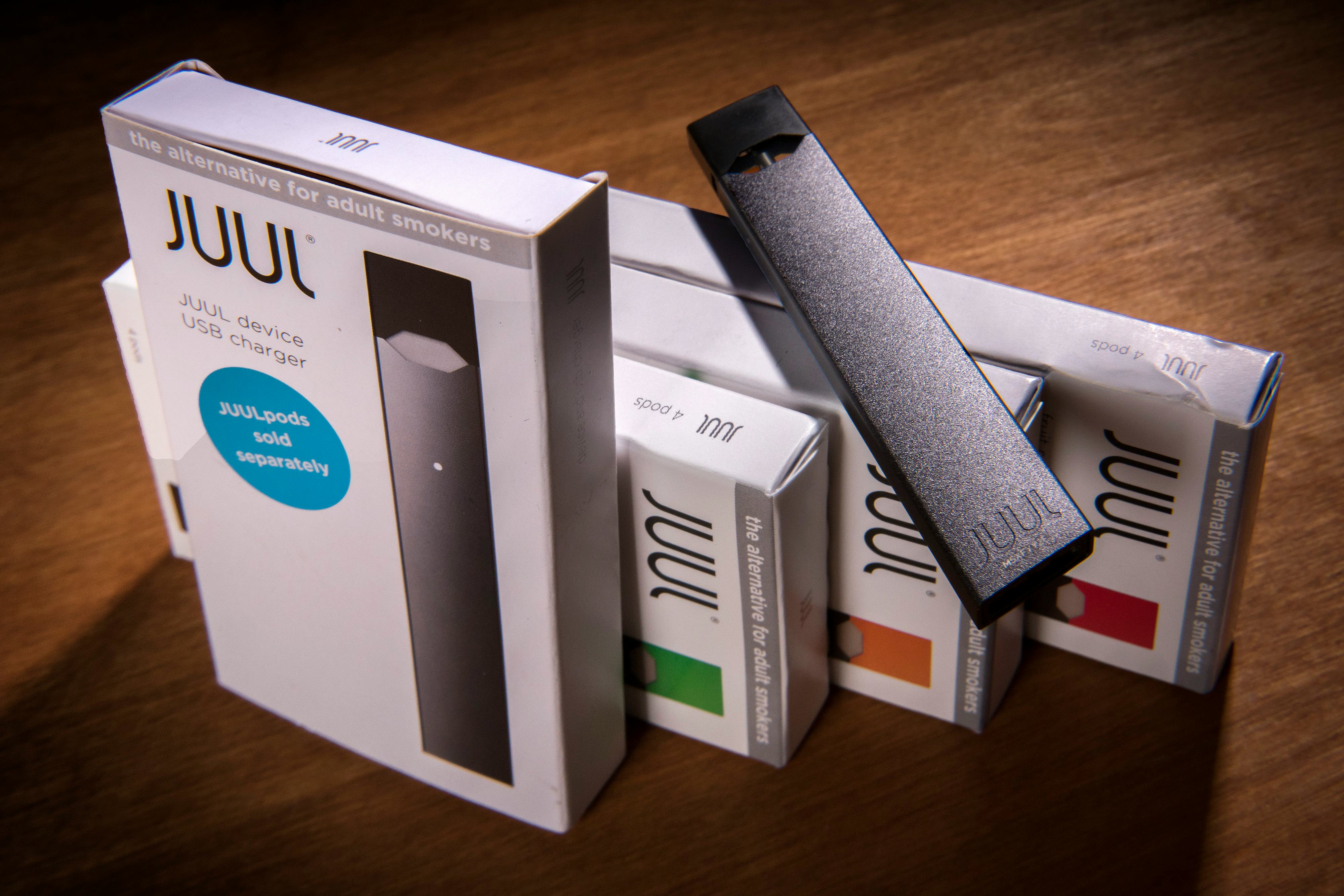
We trust science because it’s supposed to be objective — we presume that researchers design studies with as little bias as possible. But looking into the funding sources of these studies sometimes reveals that they’re not as impartial as we might think. The fact that Big Pharma funds and runs most trials of its drugs has already raised eyebrows. Now, e-cig manufacturer Juul has waded even deeper into this ethical gray area. While awaiting a ruling from the FDA on its vaping device, Juul has sponsored studies on the product and paid a journal to publish them, MedPage Today reported.
The FDA has until September 9 to decide whether Juul's vapes offer a public benefit through acting as a safer alternative to cigarettes, which would warrant them staying on the market, according to the outlet. But the New York Times noted that medical organizations like the American Academy of Pediatrics and the American Heart Association have have requested that the FDA reject the application. Physicians previously interviewed by Mic have all maintained that vapes aren’t harmless.
Per MedPage Today, Juul worked on studies of its own product alongside healthcare consultants Pinney Associates and the Centre for Substance Use Research (CSUR). The American Journal of Health Behavior (AJHB) published 11 of them, which showed evidence that Juul vapes help smokers ditch cigarettes, according to the Times. MedPage Today found that Juul staff worked on all 11 articles, Pinney on 10, and CSUR on seven.
Even shadier, Juul paid AJHB a cool $51,000 for the May/June issue, including $6,500 to let anyone access it, the Times reported, even if they don't have a paid subscription to the journal.
Although AJHB’s bylaws say it charges researchers for their papers to appear in the journal, MedPage Today pointed out that it’s unprecedented for a company to buy out a whole issue for publication at that big a scale.
Elbert Glover retired as editor and publisher of AJHB on the heels of the issue’s release, but told the Times that the journal followed its usual process for scientists to weigh in on studies before greenlighting publication. The newspaper also noted that three members of the journal’s editorial board resigned in response to the special edition.
Juul and its collaborators have defended the special edition as a scientifically sound effort to shed further light on vaping products. In a letter to the editor in BMJ, Erik Augustson, senior director of behavioral affairs at Juul, and Saul Shifan, senior scientific advisor at Pinney, echoed Glover’s assertion that all the studies went through the standard peer review and editorial channels.
"Publication of a special issue, versus individual articles published over the course of many months, provides a more comprehensive and integrated account of our studies,” a Juul spokesperson told MedPage Today.
But critics paint a less innocent picture. “Pretty much all the articles take the Juul party line that e- cigarettes help convert smokers away from combustible tobacco products, and thus aid public health,” wrote David Dayen, executive editor of The American Prospect.
The facts speak for themselves: Juul funded an entire special edition of a journal that featured studies concluding that their vapes wean smokers off cigarettes — with the deadline for the FDA to decide whether their products offer a public health benefit right around the corner. If that’s not corporate meddling, I don’t what is.






